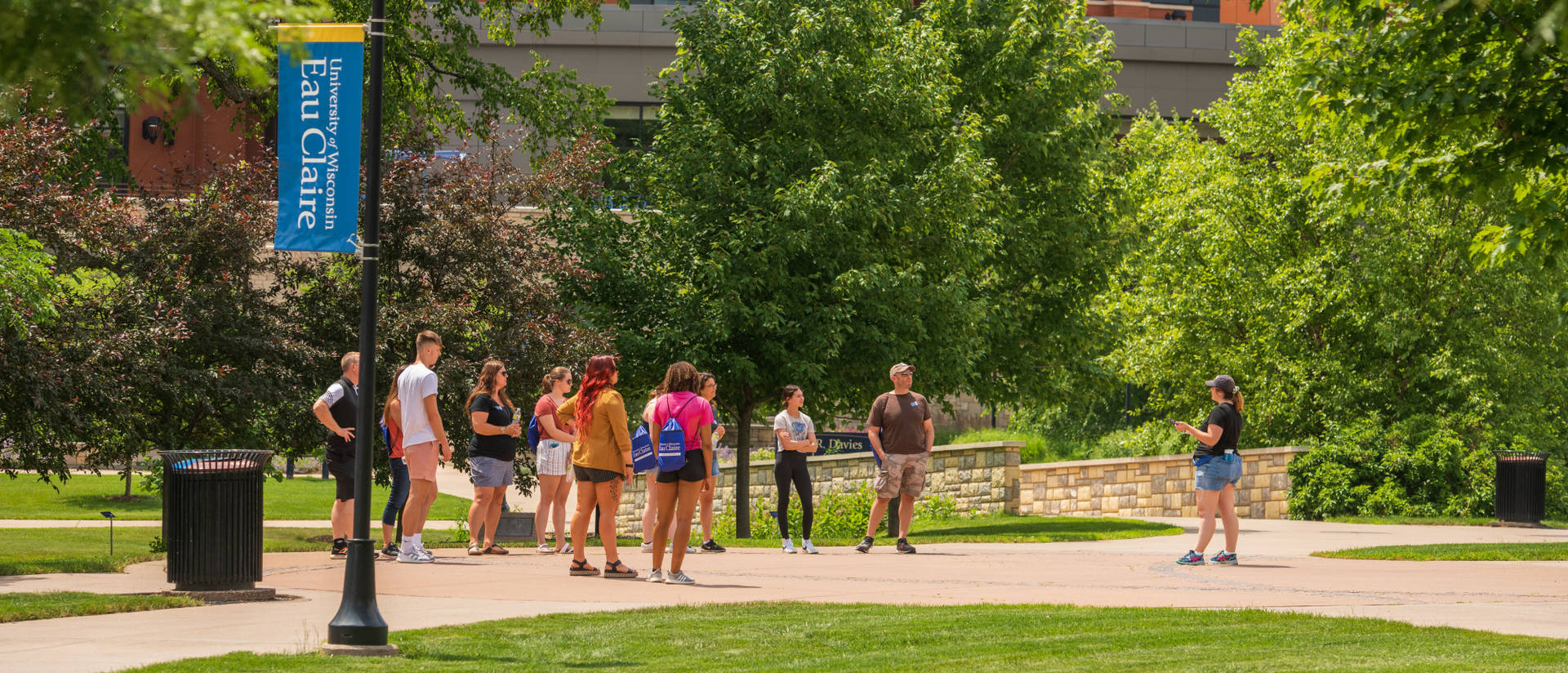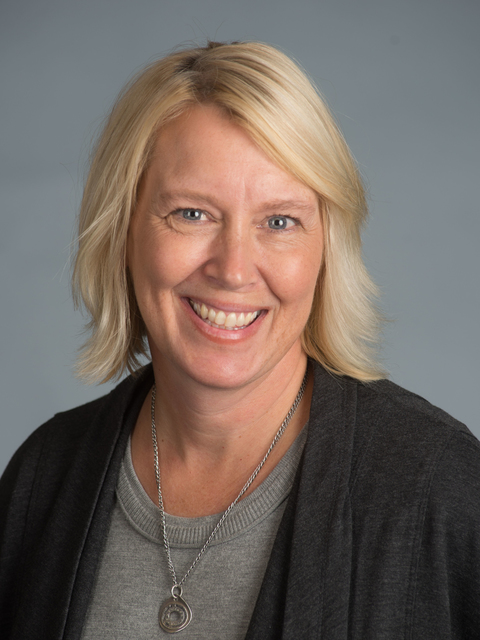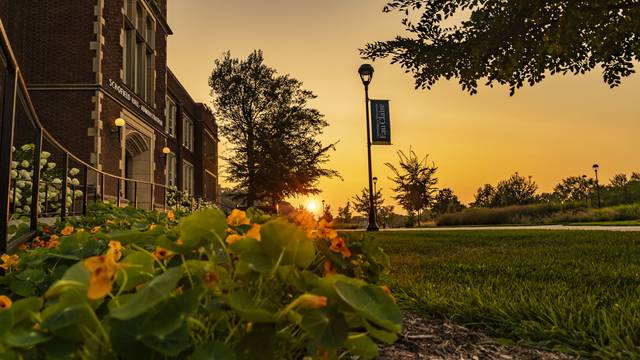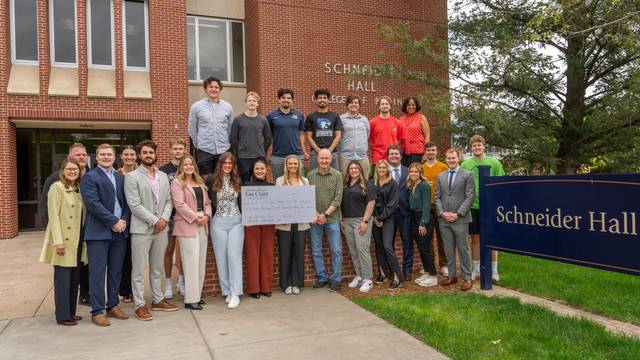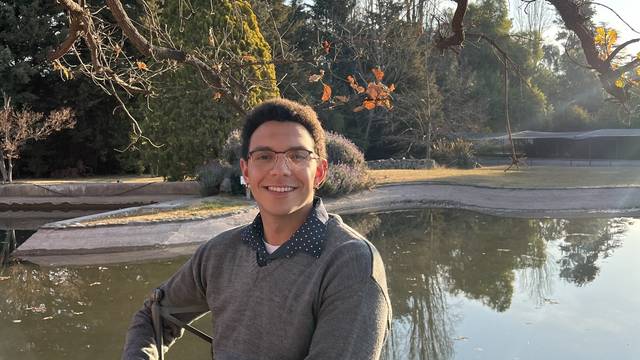Photo caption: A $70,000 grant will help fund UW-Eau Claire's Fostering Success program, which provides resources and support for Blugolds who were in foster care as youths and/or who identify as homeless.
A new $70,000 grant will help fund a University of Wisconsin-Eau Claire program that provides resources and support for Blugolds who were in foster care as youths and/or who identify as homeless.
The UW System grant will provide $20,000 in one-time funding and $50,000 in annual funding to help support UW-Eau Claire's growing Fostering Success program, an initiative launched in 2019 by members of a campus leadership program.
Thanks to donation drives and other efforts, the Fostering Success program has provided students with special welcome baskets, finals week care packages, and general supplies like toiletries and school supplies.
The new grant monies will allow UW-Eau Claire to build on the existing program and to provide even more support and resources to meet the needs of up to 50 Blugolds each year, says Jodi Thesing-Ritter, executive director for diversity and inclusion, who will oversee the Fostering Success program.
“We’re building a program that will provide mentorship to youth who are in foster care and/or who are homeless in high school to help them consider college as possible for them,” Thesing-Ritter says. “If they choose to come to UW-Eau Claire, this grant will allow us to provide additional supports through their graduation from UW-Eau Claire.”
A “critical element” of the Fostering Success program plan is developing recruitment strategies to provide prospective students with supports to better access postsecondary education, Thesing-Ritter says. Those strategies will include building connections with foster and/or homeless youth attending area K-12 schools, especially students in grades 9-12, she says.
The Fostering Success program will offer special campus events, mentoring and college tours to high school students they identify through university partnerships with schools and community groups, Thesing-Ritter says.
“The goal is to develop a robust Fostering Success program that will increase the numbers of students who have been in the foster youth system who enter and are successful in college,” Thesing-Ritter says.
Once they enroll at UW-Eau Claire, the program will help to increase the Blugolds’ sense of well-being and belonging, provide needed support to stay in college, help them stay on track to graduate on time and help reduce the amount of debt they accrue during college, Thesing-Ritter says.
Specifically, the Fostering Success program will provide:
- First-year orientation programming for former foster youth.
- A peer-to-peer mentorship program where older Blugolds will mentor first-year students.
- Faculty or staff “college coaches,” who will meet monthly with students to provide an adult connection to campus and the community.
- Intentional advising to support academic success and retention.
- Monthly events to connect foster youth with one another.
- Access to laptops and other technology resources for academic and personal computing needs.
- Emergency fund resources to provide just-in-time finances.
- Intercultural immersion experiences.
- Access to study support and tutoring resources.
- Access to clothing and food resources.
The new funding also will make it possible for more students in the Fostering Success program to participate in the many high-impact programs UW-Eau Claire offers its students, including domestic intercultural immersion programs, Thesing-Ritter says.
“We know these kinds of experiences are life-changing for many of our students, so we want to make sure that all Blugolds can access them,” Thesing-Ritter says.
The Fostering Success program will share space with the university’s Campus Closet and Campus Harvest programs, providing students in the program with easy access to clothing and food resources.
UW-Eau Claire staff and students who were part of the foster youth program are very involved in planning the Fostering Success program, Thesing-Ritter says.
“Their valuable input has helped us to develop a plan that will best serve our students and allow for flexibility as we build a program and collect data on the results of our interventions,” Thesing-Ritter says. “Former foster youth staff, students and community members will serve on an advisory board and will continue to provide critical insights into our program development and assessment.”
Taz Smith, a senior criminal justice major from Green Bay, was a co-founder of the Fostering Success program when she was still a first-year student. She has said she wanted to formally establish supports for former foster care students like herself.
Kacey Soetebier, who graduated in May with a degree in biology, is among those who have benefitted from the work done by Smith and other founders of the Fostering Success program.
As she was graduating, Soetebier, who came to UW-Eau Claire after 10 years in the foster care system, described the support and community she found through the Fostering Success program as a “life-saver.”
“This program does a phenomenal job offering some of the day-to-day needs that become hard to manage on a student budget,” Soetebier says.
However, the “greatest benefit” of the program was finding a community of students who share a history in the foster system, Soetebier says.
“I’ve always struggled with making attachments, and this group of peers became an important support to me,” Soetebier says. “From making tie blankets or cookies to just getting together for pizza, our connections became tight. I’m grateful for that — being part of this group helped me become better at learning to ask for help when I need it.”
